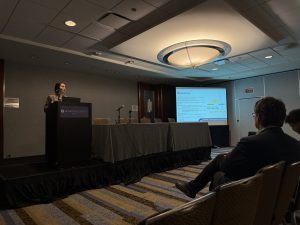
Nov. 12, 2025
PhD candidate earns Best Student Paper Award for physiological measurement study
Sara Mostowfi and collaborators propose that pupil dilation can reveal metacognitive processes in AR-based learning environments.
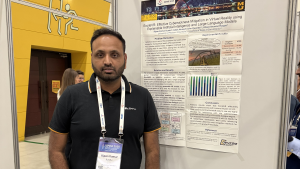
Nov. 10, 2025
Mizzou Engineering researchers bring home award from International Symposium on Mixed and Augmented Reality
Researchers presented a highly effective, easy to use machine-learning model to reduce cybersickness with minimal impact.
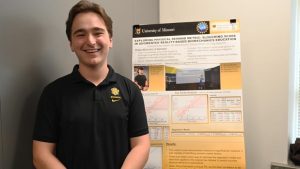
July 24, 2025
Undergraduate researcher wins international acclaim
Industrial Engineering senior garners top paper award for research on physical demand in AR users.
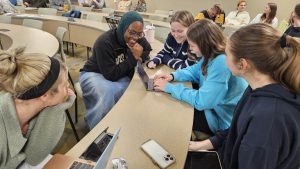
April 16, 2025
Hands-on learning with emerging technology
From augmented reality to robots, Mizzou Industrial Engineering students learn with leading edge tools.
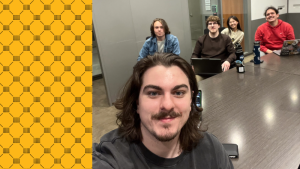
April 8, 2025
Jump into the TigerVerse
Discover the world of programming in immersive environments at Mizzou’s extended reality hackathon.
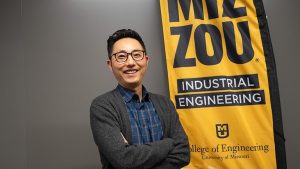
Jan. 28, 2025
Mizzou researchers use posture to measure physical demand in augmented reality users
Interdisciplinary discovery has broad implications for workplace policies and safety regulations.
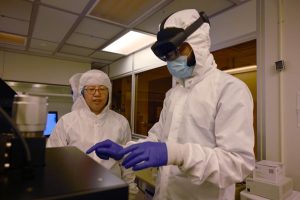
Nov. 15, 2024
Mastering semiconductor fabrication through extended reality
Mizzou Engineers recently received a grant to enhance semiconductor fabrication education using artificial intelligence and extended reality.
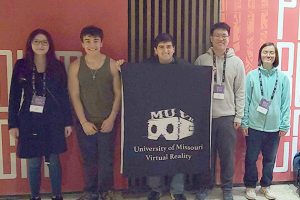
Feb. 12, 2024
Computer science, IT students participate in MIT Reality Hack
Mizzou Engineering’s Shane McKelvey and his team earned a first-place award at MIT’s Reality Hack in January for their development of a novel treatment that uses virtual reality (VR) to help young patients undergo electro-stimulation therapy.
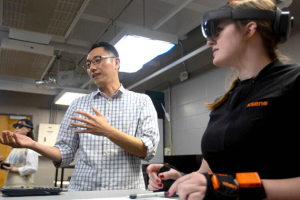
Jan. 12, 2024
Study finds correlation between metacognition and effectiveness of virtual instructors in remote classes
Augmented and virtual reality are changing the way universities can offer remote and online courses. These technologies allow for course materials to be presented to students in a more engaging and interactive way. However, right now, there’s a disconnect between the “wow” factor and what students actually learn using these technologies.
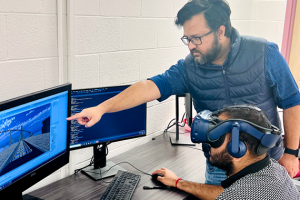
Nov. 15, 2023
Mizzou Engineer developing system to combat cybersickness experienced by soldiers using XR goggles
In theory, augmented and virtual reality are ideal tools to train soldiers for battle in safe, controlled settings. In reality, these extended reality (XR) goggles are causing all sorts of problems — headaches, nausea, eye strain and other forms of so-called cybersickness.